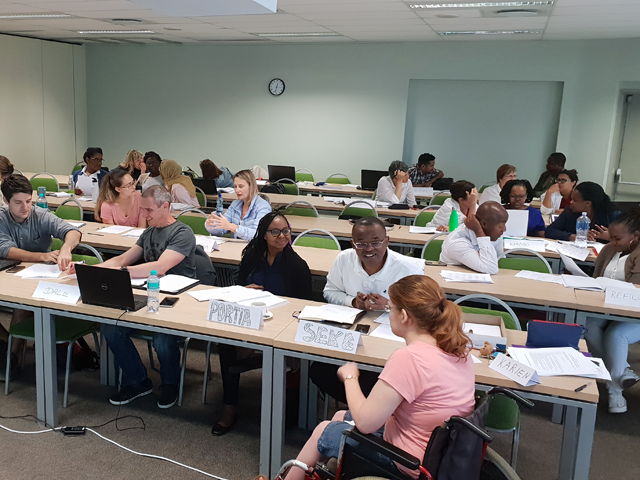21 February 2019
Karien Joubert
At times, the world of social science research can feel like a confusing maze. This is true particularly during the early stages of a new research project, especially for students who come from a natural sciences background. A recent three-day workshop at CREST, held 13 – 15 February 2019, posted some helpful signs and directions on the walls of this maze. I joined the workshop, together with around 30 MPhil and PhD candidates.
The workshop kicked off with an introduction to quantitative design using the survey design as an example. Guided by Professor Heidi Prozesky, we came to grips with the central elements of survey-based research. We had a hands-on opportunity to edit a draft questionnaire, which helped us to see the complexities and potential pitfalls of this research instrument.
Day two of the workshop, presented by Dr Lauren Wildschut, focused on the principles of qualitative research, using the semi-structured interview as data collection method. Dr Wildschut highlighted the importance of focused interviewing skills and provided advice on avoiding superfluous data sets. She introduced us to the potential of new software tools such as Atlas.ti that are revolutionizing the management of qualitative research data.
Principles and logics of research design in the social sciences featured in the final day of the workshop. Prof Johann Mouton set about demystifying the research process. Through a three-worlds framework, he demonstrated the links between the world of everyday life and the world of research. He used this framework to explain the successive steps in focusing a research question at the beginning of a new research project.
Group activities throughout the workshop helped us to relate and apply the new insights to our own research topics. We also had an opportunity to suggest topics for future research methodology workshops, since CREST intends to make this a regular feature on their academic calendar.
I recently completed my own master’s degree in history, but during this workshop I saw various possibilities for improving my own research design and instruments. This new knowledge will improve my future research endeavours as I continue in the academic arena.
Group activities throughout the workshop helped us to relate and apply the new insights to our own research topics.



